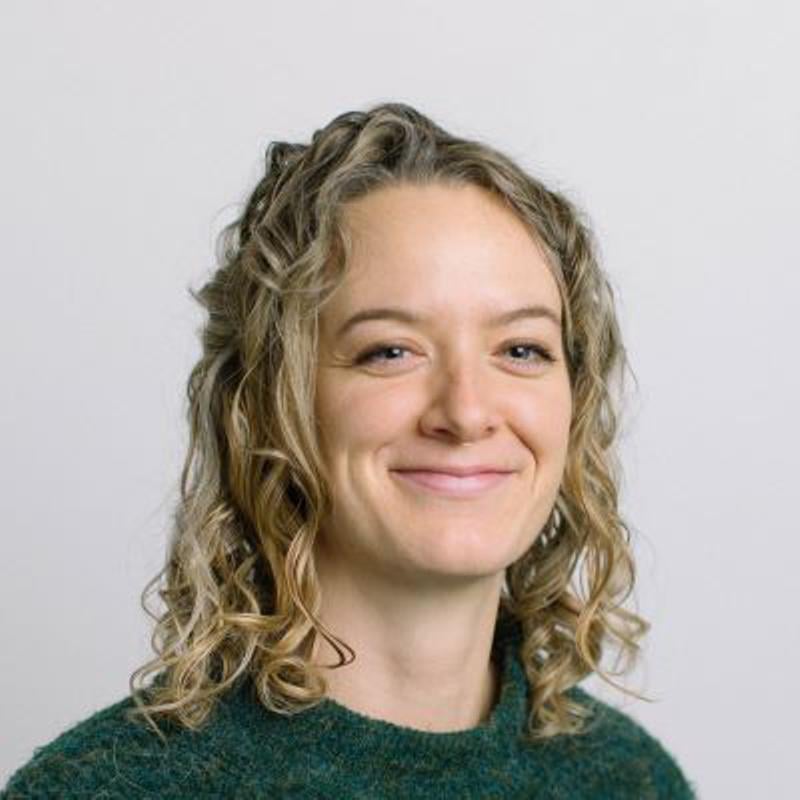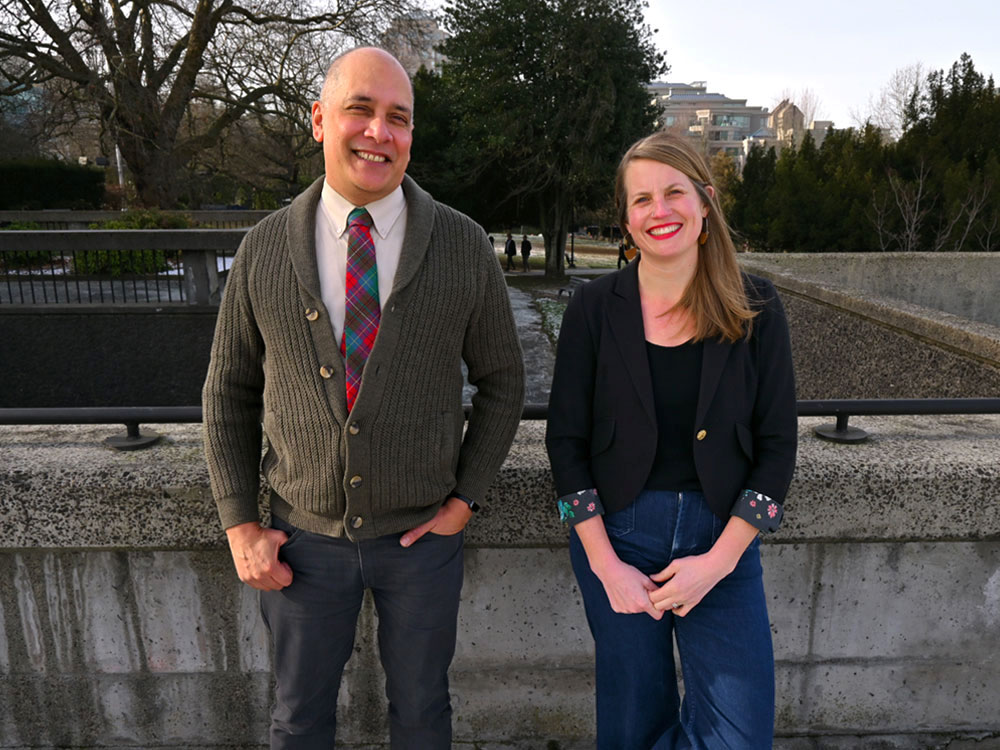When A Better City Vancouver marched into city hall in the summer of 2022, they did so with a strong majority and a long list of campaign pledges.
Six of those 92 pledges, ranging from bringing in more public bathrooms to establishing a free, low-barrier, 24-hour treatment and recovery centre, focused on the health and well-being of Vancouverites.
While health care is largely in the jurisdiction of the province, that doesn’t mean municipal governments can’t create their own policies or work with higher levels of government to improve everyone’s health, says Wes Regan, a PhD student at the University of British Columbia’s school of community and regional planning.
Regan also works in the office of the chief medical officer of Vancouver Coastal Health but was speaking to The Tyee as a PhD student, not as a representative for the office.
As examples of Vancouver-level initiatives, Regan pointed to how previous city councils have invested in peer programs through social policy grants and promoted harm reduction policies.
The current health-related ABC pledges would all be easy wins, Regan added, noting a great way to improve the health of communities is to support collaboration with their local health authority. Documents like the Healthy City Strategy are helpful frameworks to support collaboration between the city and Vancouver Coastal Health, Regan said.
To hear what headway the party has made after a year and a bit in office on these six pledges, The Tyee asked to speak with Mayor Ken Sim or any of the seven ABC councillors who make up the majority of Vancouver city council.
Councillors either declined an interview or referred The Tyee to the mayor’s director of communications, who declined on behalf of all party members.
So The Tyee reached out to Green Party Coun. Pete Fry and OneCity Coun. Christine Boyle to ask what progress they’ve seen made in city hall.
Fry is critical of ABC’s list of 92 campaign pledges and said most of the pledges were nothing more than “vapid hot air” used to drum up support from less politically literate voters.
“Making empty promises is something ABC has embraced,” Fry said, noting how the party hasn’t been able to meet its campaign pledges after more than one-quarter of its term in office with a strong majority.
Boyle said it was “disappointing” that Mayor Sim and ABC have “very little to show for their first year in office in terms of tangible action and real accomplishments that improve life for Vancouverites.”
“I want more than swagger. I want public washrooms and meaningful action on health issues that impact everyone across this city,” she added.
Let’s take a look at ABC’s six health pledges in more detail.
An ABC majority will hire 100 new police officers and 100 mental health nurses as part of a renewed approach to community policing and the expansion of successful Vancouver Police Department/health authority-led programs like Car 87.
In October The Tyee reported how in the time it took the city to hire 100 cops, the health authority had hired only 9.5 full-time equivalent nurse positions to support mental health initiatives.
The city could hire its own mental health nurses if it wanted to, but it would duplicate an existing service so it’s not advisable, Fry said.
Mental health outreach has also moved away from a team consisting of one police officer and one mental health nurse because including an armed officer is not always best practice in mental health outreach and de-escalation, Fry added.
There’s also a nursing shortage in North America, Boyle said, which makes hiring 100 nurses with specialized training in mental health a challenge.
An ABC majority will support all Vancouver Coastal and Providence Health Authority-led initiatives that enhance the safety of the drug supply to address the drug poisoning crisis.
The previous city council was proactive in supporting the health authorities with the provincial decriminalization pilot project, Fry said.
So far ABC hasn’t reversed the city’s support of decriminalization but it hasn’t done much to support it either, Fry added. He pointed to the city’s decision not to renew the lease for the Thomus Donaghy Overdose Prevention Site, which means the neighbourhood with the city’s second-highest overdose rate will lose a major harm reduction service in March 2024.
“The increase in street sweeps has further marginalized people who use drugs and hasn’t enhanced life-saving interventions,” Fry added.
Boyle said that while she hasn’t seen ABC vote against harm reduction services, the closing of the Thomus Donaghy OPS is a sign the party isn’t working to “ensure there are life-saving services in that neighbourhood.”
She added she has been asking council to commit to keeping the site open until a new location is found for the OPS to operate in but that she has been unable to get a commitment from the mayor or ABC.
An ABC majority will call for a mental health summit with all Lower Mainland mayors, the premier, relevant provincial and federal ministers, First Nations, health authorities, community service agencies and community members with the goal of establishing predictable funding and the creation of a new Mental Health Centre of Excellence through a regional model of care that incorporates treatment and recovery.
Boyle called this pledge an “interesting idea” but said she hadn’t heard anything from ABC about making a summit happen. “They said they’d ‘call’ for it, and it’s unclear what that means,” she said. “If it’s a priority, then they should be showing more commitment to it.”
“This is a conversation that needs to happen, whether it’s initiated by ABC or a health authority, but there hasn’t been any work to create it,” Fry added.
Fry said it was possible he and Boyle hadn’t heard about progress made on this initiative because ABC has been working on it behind closed doors, which he said goes against the transparency a municipal government should operate with.
“It’s not how the government is supposed to work but it’s how it’s de facto been working,” he said.
An ABC majority will work to establish a free, low-barrier, 24-hour recovery centre for those struggling with drug addiction.
Fry said he’s heard “crickets” about this pledge — but that there’s an opportunity for ABC to make good on its promise.
The Vancouver Junction is a low-barrier, peer-led recovery community program run by Vancouver Coastal Health that is currently looking for a space to operate, Fry said. “ABC could help find them a space because there’s been a general unwillingness for landlords to take them on.”
Boyle said she hadn’t seen any motions introduced that would help establish a recovery centre and that she didn’t see anything related to the pledge in the city’s 2024 draft budget, which came out last month.
“These resources are needed and they’re not fully the city’s responsibility, but if ABC was planning on following through I haven’t seen any serious leadership on it yet,” Boyle added.
An ABC majority will work with the province and the Canadian Mental Health Association to establish peer-assisted care teams.
Boyle said she hasn’t heard anything on this either. When ABC introduced its motion to hire 100 police officers and 100 mental health nurses, she added an amendment to include the creation of peer-assisted care teams. At the time, she said, it was supported by council.
But, Fry added, while Boyle’s amendment called for the “launch” of peer-assisted care teams, ABC changed the wording to say the city would “explore” care assist teams instead. “Explore,” Fry said, is a “do-nothing word” and “a long way from taking action.”
An ABC majority will invest in increasing the number of public washrooms, showers and water fountains.
“Do decorative water fountains count?” Fry asked, referring to a March 2023 motion from ABC Coun. Peter Meiszner that called for fountains in the West End to be turned back on even though they don’t reuse their water, which is required by Vancouver’s bylaws.
Public washrooms have a hard time in Vancouver, Fry added. It’s not so much the cost of building them but the cost of maintaining them and repairing vandalism that puts a dent in the city’s budget.
Vancouver has standing programs for public washrooms, showers and water fountains, but there’s been “no new investment and their promise was to increase the number,” Fry said. “I haven’t seen that.”
Boyle said that thanks to a motion she brought forward in 2020, city staff should be presenting a public washroom strategy this year.
“The important next step will be funding it,” she said. “I hope when it comes forward ABC will support it and follow through with implementing it.” ![]()
Read more: Health, Municipal Politics

















Tyee Commenting Guidelines
Comments that violate guidelines risk being deleted, and violations may result in a temporary or permanent user ban. Maintain the spirit of good conversation to stay in the discussion and be patient with moderators. Comments are reviewed regularly but not in real time.
Do:
Do not: